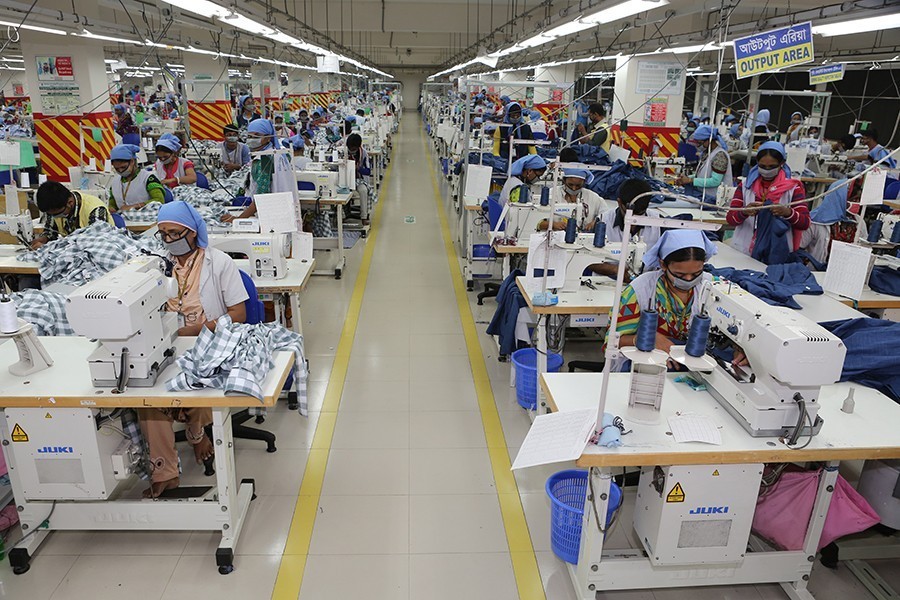International Trade Union Confederation (ITUC) has found fresh evidence of violation of workers' rights in three major industrial sectors of Bangladesh.
The three sectors are: readymade garment (RMG), ship-breaking and leather sectors where it also found unfair labour practices, anti-union discrimination, unsafe workplaces, violence against workers and non-payment of wages and benefits, according to its latest report.
The ITUC released the report on Thursday ahead of the government's latest progress report to the ILO governing body this week.
The report was prepared based on interviews with workers in October and November 2021 and the names of workers have been changed for their safety and protection, the report said.
"Obstruction and refusal by the government of Bangladesh to improve conditions put workers' lives at risk. Every day they delay on commitments to reform, another worker and the worker's family feel the pain of inaction," said a statement quoting ITUC general secretary Sharan Burrow.
She added: "As the government of Bangladesh prepares to update the ILO governing body on the progress of reform, anti-union discrimination, wage discrimination and unsafe working conditions continue to be reported in three of the country's largest employment sectors-the ready-made garment, ship-breaking and leather (tannery) sectors."
Biplob, a 40-year-old readymade garment worker, was one of eleven union members blindfolded and kidnapped, days after union registration was obtained; the kidnapping was an attempt to intimidate workers in the newly-formed union, according to the report.
It also quoted Shampa, 27, who was reportedly threatened with dismissal when she asked for maternity benefits that were promised to her.
Zaman, a 49-year-old leather worker, reported that workers laid off during the pandemic got their jobs back but they are no longer on permanent contracts.

The ITUC also called on the Bangladesh government to improve job security, uphold the right to freedom of association and collective bargaining, introduce a national minimum wage, make workplaces safe and eliminate harassment, discrimination and abuse against women workers.
"The government of Bangladesh must immediately set up a transparent and effective monitoring mechanism for the implementation of the ILO roadmap and meaningfully consult with tripartite constituents on all the action points," said Ms Burrow.
The ITUC has also identified ten areas of inaction by the Bangladesh government against which it must report progress in March 2022.
When asked, Bangladesh Garment Manufacturers and Exporters Association (BGMEA) President Faruque Hassan said there should not have general allegation, calling for specific information about violation, if any.
"The ITUC should provide the names of factories in which they found violations. Without any specific name of the factory, it is not possible to check the issues," he said, adding that they have no scope to check and take required measures.
He, however, claimed that it was internationally recognised that the working condition in Bangladesh's RMG factories improved a lot during the last several years.
Echoing the BGMEA leader, Bangladesh Knitwear Manufacturers and Exporters Association (BKMEA) executive president Mohammad Hatem disagreed with the findings.
Terming the local RMG sector a 'role model for workplace safety', he said 'all allegations are nothing but lies.'


